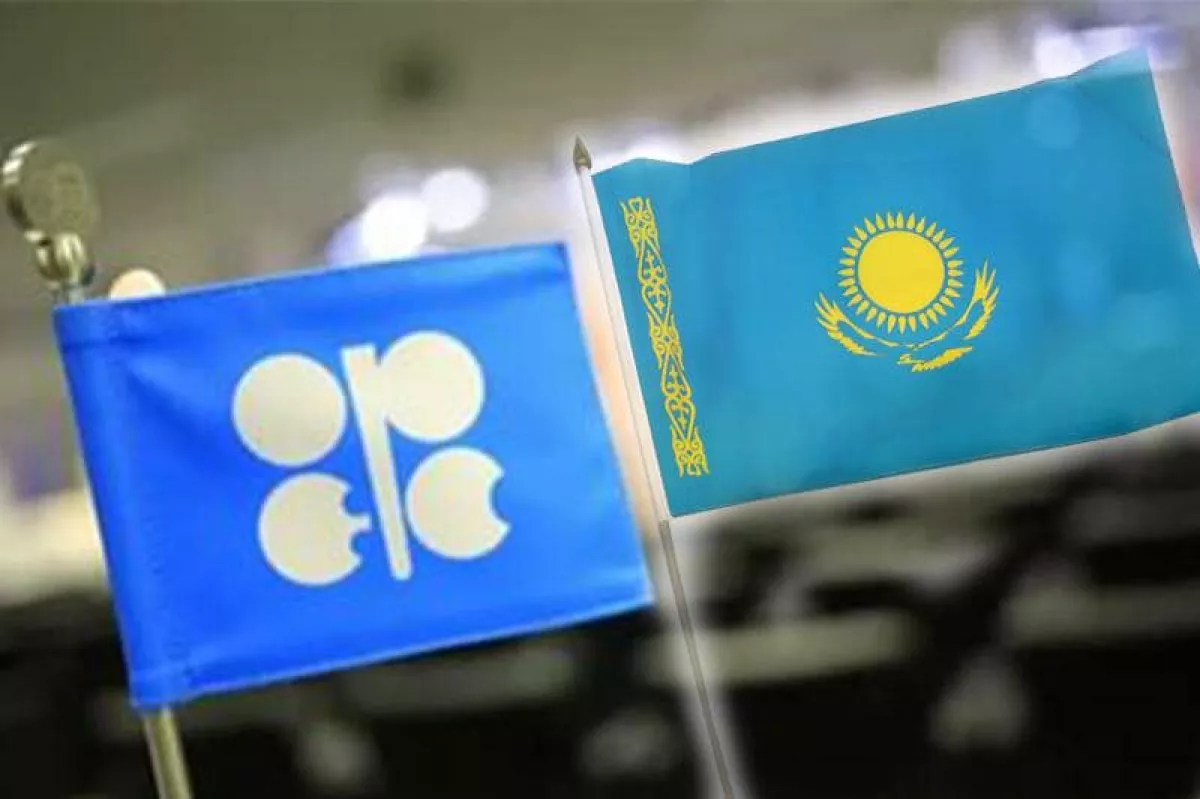Kazakhstan and OPEC+: Is mutual understanding in question? National interests take centre stage
On April 23, Kazakhstan's Energy Minister Yerlan Akkenzhenov stated that Astana, in terms of oil price policy and "decisions regarding production levels," would "prioritise national interests over those of the OPEC+ group." At the same time, while assuring that Kazakhstan would take measures to "adjust its actions" in line with OPEC+, Akkenzhenov notably emphasised: "But even if our partners are not satisfied with the adjustment, we will still continue to act in accordance with national interests."
The minister clarified that Kazakhstan "cannot reduce production at its three major oil projects, as they are controlled by foreign majors, especially the Tengiz field, led by Chevron," which is currently expanding oil production.
A statement published by the Ministry of Energy quoted Akkenzhenov as saying that Astana, as a responsible member of the international energy community, is interested in ensuring "predictability and balance between supply and demand."
In this context, it is noted that the developments triggered strong dissatisfaction not only from Saudi Arabia but also from other cartel members. As a result, a decision was announced for some OPEC+ countries to move towards a more accelerated recovery of production, while stipulating that quota violators would have to "compensate for overproduction by reducing oil output."
However, as experts highlight, Kazakhstan’s oil production figures over the past two months are far from demonstrating any reductions. Consequently, some analysts have warned that the risk of an escalation into a "price war" cannot be ruled out in the near future.

Overall, the situation concerning Kazakhstan’s relationship with OPEC+ is far from new. Back in August 2024, during a meeting with Kazakhstan’s Prime Minister Olzhas Bektenov, OPEC Secretary-General Haitham Al Ghais, while noting the country’s significant role in the global oil market, also stressed the impact of Astana’s measures on maintaining market balance and predictable oil pricing.
In response, Bektenov reaffirmed Kazakhstan’s commitment to "continued cooperation within the OPEC+ framework" and highlighted the country’s support for the organisation’s initiatives, including its adherence to production limits alongside other states, particularly "under the current voluntary commitments."
However, as some experts pointed out at the time, the OPEC Secretary-General’s visit to Astana was prompted by the organisation’s dissatisfaction with Kazakhstan’s failure—through its Energy Ministry—to fulfil promises to compensate by the end of the year for the volumes of oil produced and exported by the country in violation of its voluntary production cut commitments under the OPEC+ deal.
It should also be recalled that in December 2024, OPEC+ countries agreed to extend voluntary oil production cuts of 2.2 million barrels per day until April 2025, after which the possibility of restoring production levels would be reviewed. At the same time, it was reported that the compensation period for under-reduced oil production volumes by debtor countries within OPEC+ —including Iraq, Kazakhstan, and Russia—was extended until the end of June 2026.
Meanwhile, on April 3, it was announced that eight OPEC+ countries—part of the broader alliance comprising 23 oil-exporting states, including Russia—had unveiled plans to sharply accelerate the pace of oil production growth. Starting from May 2025, the main cartel members are set to increase supplies by 411,000 barrels per day.
Notably, OPEC included an interesting clause, stipulating that the ongoing increases may be paused or cancelled depending on changing market conditions, with flexibility allowing participating countries to speed up the compensation of previously under-reduced volumes.

According to OPEC+ data published in mid-April, Kazakhstan exceeded its oil production limit by 422,000 barrels per day, resulting in an actual daily output of 1.85 million barrels compared to the established quota of just over 1.40 million barrels.
It was against the backdrop of these figures being widely circulated that Astana faced demands to present a clear timeline for "compensating the overproduction." On April 16, it was specified that OPEC+ countries must compensate for 4.57 million barrels per day of under-reduced production between April 2025 and June 2026, with Kazakhstan accounting for 1,299 barrels per day of that amount.
Against this background, on April 23, Kazakhstan’s Energy Minister outlined the country’s position, underscoring Astana’s focus on defending its national interests above all else.

In light of recent developments, some media outlets have confidently claimed that Akkenzhenov’s statements allegedly signal Kazakhstan’s "withdrawal from the OPEC+ deal." They warn that if the cartel does not respond swiftly and decisively, this move could become a "contagious example" for other participating countries.
However, according to some experts, Riyadh could address the quota and pricing issue in a completely different manner—by "flooding" the global oil market with its own crude through a sharp increase in production.
Analysts note that the cost of Saudi oil production is significantly lower than in other regions, giving Riyadh the ability to pursue its own strategy if it decides to take a hardline stance.
While a price per barrel of $50—or even $40—would not be fatal for Saudi Arabia, it could create serious problems for Kazakhstan and other oil-producing states.
Thus, relations between Kazakhstan and OPEC+ are, to put it mildly, far from stable.
Further developments are imminent, with media reporting that OPEC+ plans to discuss the possibility of another accelerated increase in oil production as early as June. In this context, eight cartel members have scheduled a meeting for May 5.








